- Any substitution that involves a top 8 allergen recognized by law and those identified as “priority allergens” by other countries including sesame, celery, lupin, buckwheat, molluscan shellfish and mustard must require a label change by manufacturers and vendors
- The food industry has committed to limiting changes to rare situations and to communicating any substitutions made on a manufacturer’s website or at point-of-sale
- The guidance is set for the duration of the public health emergency but may need to be extended if food supply chains issues persist
This is a great food allergy advocacy win! Thank you to the FDA for listening to the needs of the food allergy community.
On May 22, 2020, the Food and Drug Administration (FDA) relaxed labeling guidelines for food companies. This is a temporary measure because of food supply issues due to COVID-19 (the new coronavirus).
The Asthma and Allergy Foundation of America (AAFA) met with the FDA to talk about how this will affect the food allergy community. After the meeting, we organized a joint letter with other food allergy advocacy organizations to send to the FDA. The letter addresses the FDA’s short-term food labeling guidelines in response to supply chain issues and shortages brought on by COVID-19.
In our letter, we have asked the FDA to clarify these guidelines. We are also asking that the FDA require manufacturers to publicly post any substitutions they make. If food makers are required to post substitutions, this would actually be a positive step toward better food labeling.
These guidelines require manufacturers to avoid substitutions that contain other common allergens, such as sesame. Sesame is not listed in the top 8 foods under the Food Allergy Labeling and Consumer Protection Act (FALCPA). But the fact that it was included in this temporary guidance give us hope the FDA will soon add sesame to the list of ingredients that must be listed on food labels.
Read our joint letter to the FDA

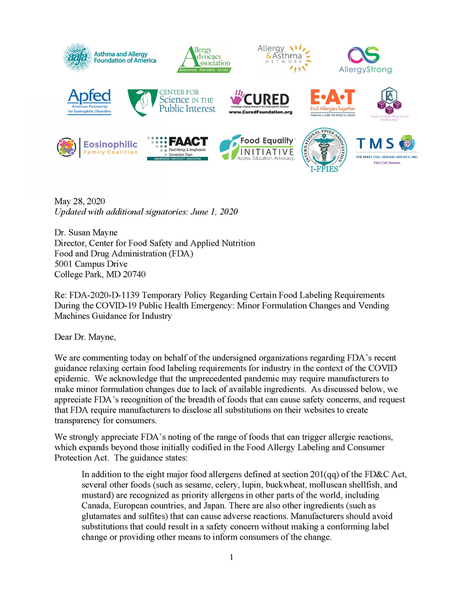
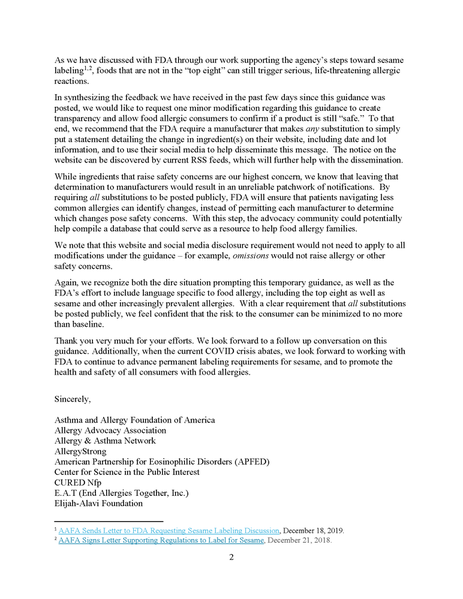
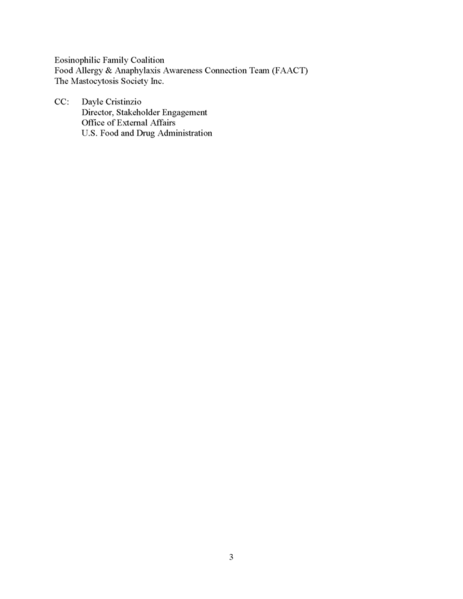
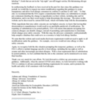
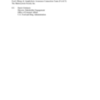

Comments (0)